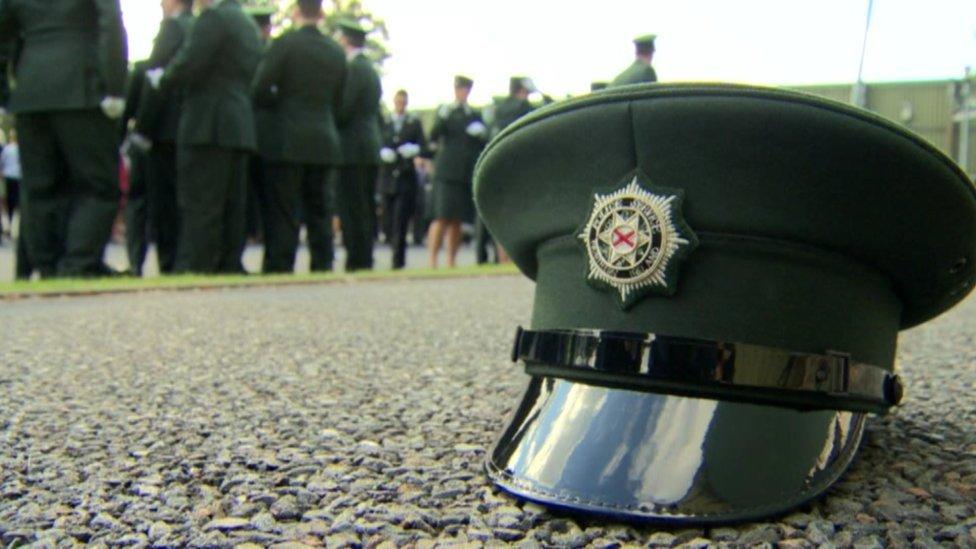PSNI: Jon Boutcher appointed as new chief constable
- Published
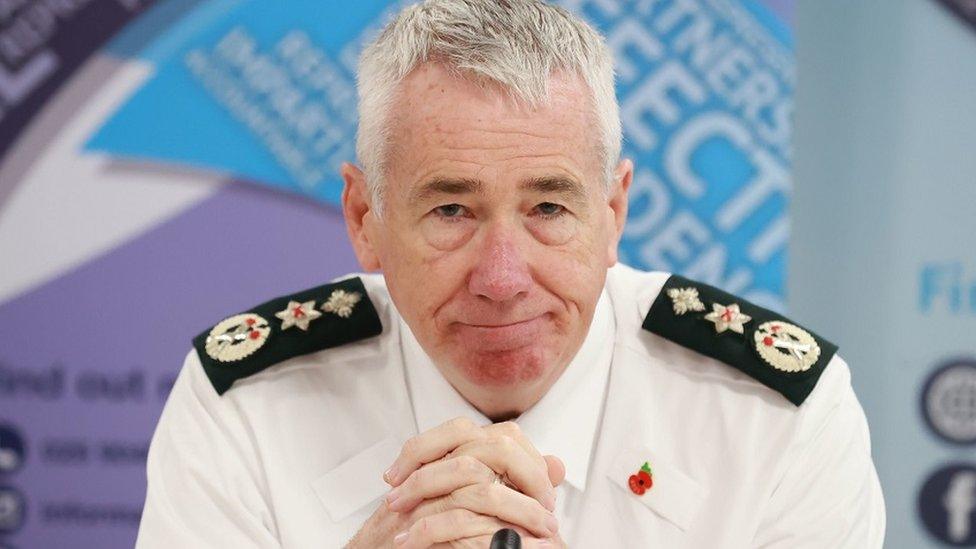
Jon Boutcher is a former chief constable of Bedfordshire Police
Jon Boutcher has been appointed as the new chief constable of the Police Service of Northern Ireland (PSNI).
Mr Boutcher is already interim chief constable of the PSNI and is a former head of of Bedfordshire Police.
He said he was "very honoured," adding that he was looking forward to "leading the dedicated officers and staff of this exceptional organisation".
The previous chief constable Simon Byrne resigned in September following a series of crises under his leadership.
Mr Boutcher's appointment was made by the Policing Board and approved by the Secretary of State for Northern Ireland.
He was one of two candidates shortlisted for the role, alongside Bobby Singleton, an assistant chief constable with the PSNI.
The position carries a salary of £220,000 and is considered one of the most demanding jobs in UK policing.
The PSNI has a staff of more than 9,000 and a budget of about £800m.
"This position carries great responsibility and is a huge privilege," the new chief constable said.
"There is much to do and I am fully committed to delivering an outstanding policing service to address the issues which matter most to our communities.
"The officers and staff of the police service do an extraordinary job and will have my full support."
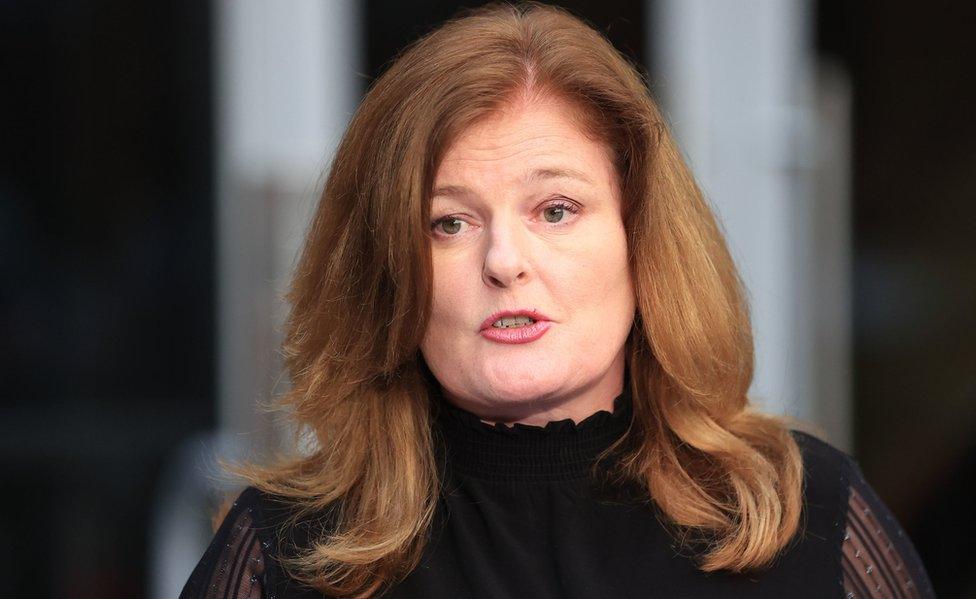
Policing Board chairwoman Deirdre Toner was one of the panellists who chose Mr Boutcher as the next PSNI chief
Confirming the appointment, Policing Board chair Deirdre Toner said Mr Boutcher was "clearly committed to the challenges ahead".
"There are also significant pieces of work to be progressed to manage and mitigate the serious financial pressures currently facing policing and deal with confidence and other issues arising from recent events," she added.
'Deep-rooted issues'
Liam Kelly, chair of police representative body the Police Federation for Northern Ireland, congratulated Mr Boutcher on his appointment.
However, he urged him to prioritise "direct and urgent" government intervention to tackle what he described as "chronic and deep-rooted issues holding back the [police] service".
He offered the federation's full support "for a campaign to get minsters to realise what is urgently required".
"The list of what must be fixed is long and can only be addressed by a meaningful and realistic funding package from government," Mr Kelly said.
Sinn Féin deputy leader Michelle O'Neill wished Mr Boutcher well but said there was a "huge job of work ahead to rebuild trust and confidence in the police with public, and PSNI officers".
She added that the focus "must be on delivering an efficient and effective policing service that works and is representative of everyone in society".
The leader of the Democratic Unionist Party (DUP) Sir Jeffrey Donaldson wished Mr Boutcher "every success" but said his appointment "must not be a false dawn".
Sir Jeffery said the DUP would engage with him to "hear his plans to restore confidence and improve relations with the unionist community".
He also thanked Mr Singleton "for putting his name forward for consideration" and wished him continued success with his career in policing.
Ulster Unionist Party (UUP) Policing Board member Mike Nesbitt welcomed the appointment and said Mr Boutcher had made a "strong start" as interim chief constable, improving morale and dealing with "a number of challenging issues".
"I feel we will see more of the same under his leadership and look forward to working with him through my position on the Policing Board," he said.


Jon Boutcher will seek to move the PSNI on quickly from what has been a damaging three months for policing.
The job of rebuilding morale internally is already under way.
Fixing the harm done to public confidence is the second part of the challenge.
The PSNI's financial situation probably overshadows all else.
It is £50m short of what it needs to balance the books for 2023-24 and mid-term the prognosis looks grim.
Unless money is found, the force will continue to shrink in size.
There's been a warning of less neighbourhood patrolling and fewer detectives.
Expect Mr Boutcher to use his appointment to make a fresh pitch for help from the Department of Justice and the NIO.

Mr Boutcher has spent the past five years overseeing an independent investigation into the activities of the Army's top spy within the IRA during the Troubles in Northern Ireland.
His Operation Kenova report into the agent, who was known as Stakeknife, is due to be published in the coming months.
He had previously applied to lead the Metropolitan Police after the resignation of Cressida Dick last year but he was unsuccessful in that process.
He was also unsuccessful in his bid to become PSNI chief constable in 2019, when the job eventually went to Mr Byrne.
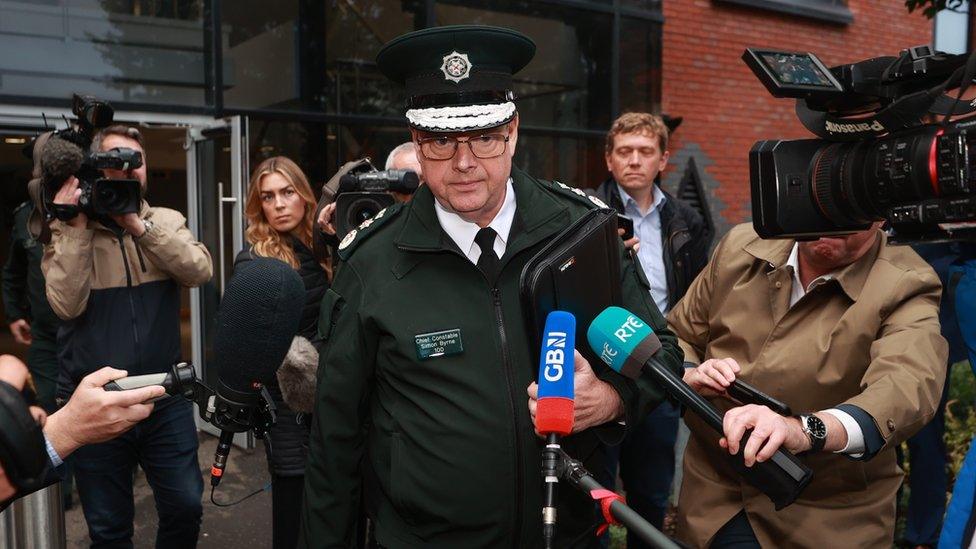
Simon Byrne quit as PSNI chief constable after a series of crises within the force
The PSNI has been without a chief constable for several weeks after Mr Byrne's resignation.
He quit after a series of controversies, including a court ruling that two junior officers were unlawfully disciplined and a number of data breaches within the force.
Mr Boutcher's contract is for five years but it can be extended thereafter.
The interview panel consisted of Ms Toner and independent Policing Board member Mukesh Sharma as well as board members Joanne Bunting of the DUP, Gerry Kelly of Sinn Féin and Alliance Party representative Nuala McAllister.

Who is Jon Boutcher?
Mr Boutcher (58) is a long-serving police officer who has held senior positions in several UK forces.
His policing career spans more than 30 years.
His most senior role to date was chief constable of Bedfordshire Police, a post he held from 2015 to 2019.
Before that he spent 28 years in London's Metropolitan Police, mostly as a detective.
Within the Met, he served with its Flying Squad, infiltrating organised crime, and then in 2003 he was transferred to the Anti-Terrorism Branch.
In 2005, he was the lead detective in the investigation into the 7 July bombings which killed 52 people on London's transport system.
Two weeks later he led the manhunt for the 21/7 bombers which resulted in the arrests of those who plotted the failed attack.
Since 2016 he has led Operation Kenova - an independent investigation into the activities of the IRA spy codenamed Stakeknife.
One of his specialist areas is undercover policing and he served as the UK's national policing lead for technical surveillance units.
He studied criminology at Cambridge University, gaining a master's degree in the subject.

Related topics
- Published12 October 2023
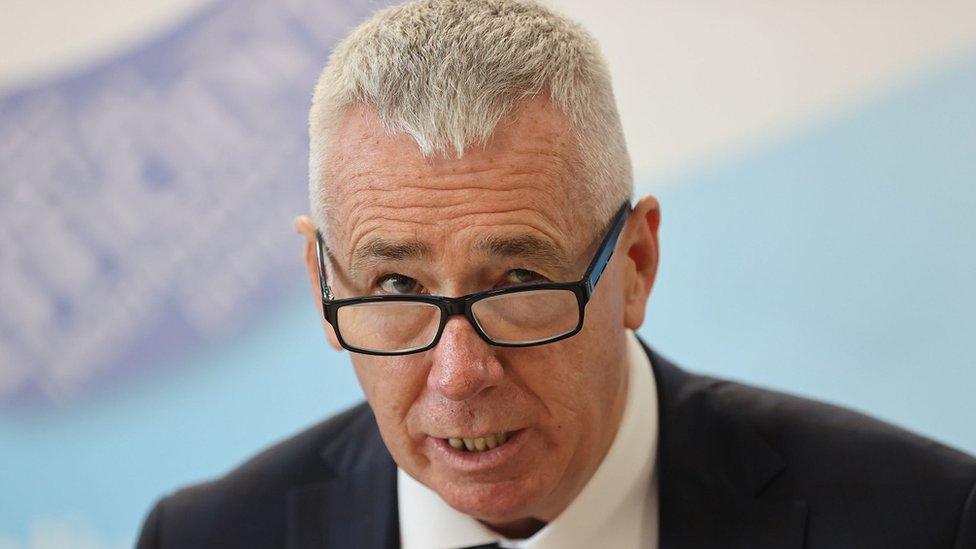
- Published6 November 2023
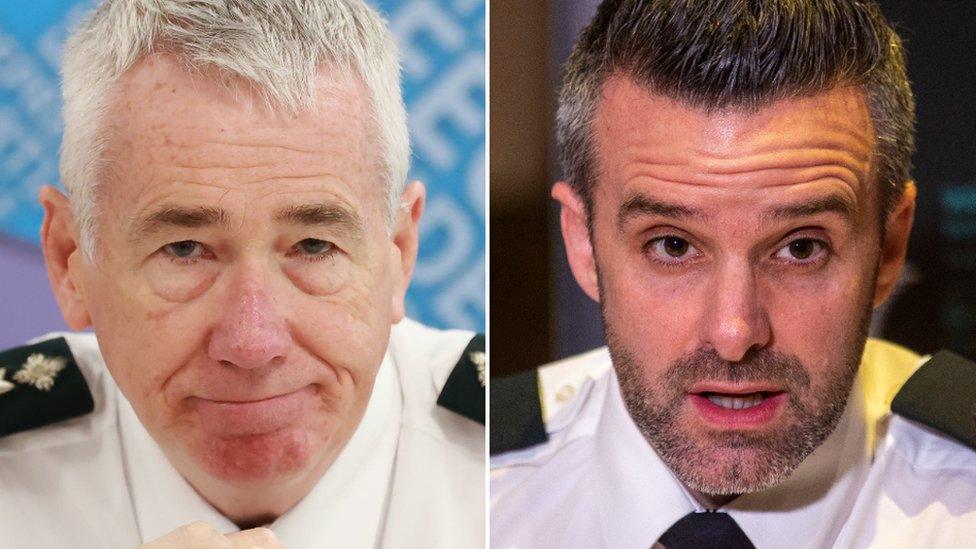
- Published4 September 2023
